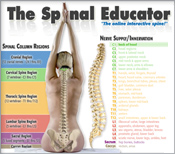| Sleep and the Chiropractic Lifestyle The Importance of healthy sleep. Does it take you more than 30 minutes to fall asleep? Do you wake frequently throughout the night or too early in the morning and then have a hard time going back to sleep? Do you feel groggy and lethargic during the day after a night’s rest? If you answered “yes” to any of these questions, you may be suffering from sleep debt that can be greatly affecting your life. Sleep is not merely a break from our busy routines, it is essential for good health, proper mental and emotion Lost productivity due to sleeplessness has been estimated to cost the national economy as much as $100 billion annually. Your daily cup of coffee consumed to help perk you up, along with alcohol and nicotine, are all common contributors to disrupted sleep patterns. Insufficient sleep may result in reduced productivity and concentration, impaired memory, decreased learning and logical reasoning abilities, and can also lead to increased feelings of stress causing difficulty in all areas of life. There is also mounting evidence that long-term sleep debt may be a factor in managing the difficulties associated with diabetes, obesity and a weakened immune system. A National Sleep Foundation poll found that 60% of American adults experience sleep problems at some time. Though everyone’s individual sleep needs vary, most healthy adults need an average of eight hours of sleep each night. However, the quality of sleep is usually more important than the quantity of sleep. Getting enough sleep without interruptions from your environmental or internal factors is more likely to help maintain your body’s natural sleep pattern and result in more restful and restorative sleep. It is very common for patients to advise their chiropractors that they sleep much better after being adjusted for reasons other than sleep deprivation. Sleep is one of the most important functions for the brain to operate properly. Healthy sleep is required for your nervous system to regulate responses to external stimuli.  Conditions that may contribute the greatest amount of continual
stimulation to the brain include physical pain, lack of sufficient
oxygen, hormonal changes, unsuitable sleep environment, poor diet and
exercise.
Conditions that may contribute the greatest amount of continual
stimulation to the brain include physical pain, lack of sufficient
oxygen, hormonal changes, unsuitable sleep environment, poor diet and
exercise. Your chiropractor is an expert in the nervous system and the elimination of the interferences that may be the cause of other seemingly unrelated problems that can ultimately disrupt your sleep. A physical examination and an in-depth sleep history may reveal how and why your sleep is being disturbed. This can start you on a plan of action to improve Virtually everyone occasionally suffers from a poor night of sleep. Certain individuals may be particularly vulnerable including students, shift workers, travelers, and persons with acute stress, depression or chronic pain. Poor sleep can be a symptom of larger problems. When combined with appropriate chiropractic care and a healthy sleep surface environment, you can create a foundation for an improved night’s sleep. The National Highway Traffic Safety Administration has estimated more than 100,000 auto crashes annually may be fatigue-related. THE CHIROPRACTIC LIFESTYLE Chiropractors are experts in the care of the bones, nerves, muscles and connective tissues that make up about 60% of your body. All of the joints in your body are part of this musculo-skeletal system and its optimal function is necessary for overall good health. Ask your Doctor of Chiropractic for more information about a care program that may include specific spinal adjustments, exercise recommendations, nutritional advice or other conservative methods of care based on your health history, age, current condition and lifestyle. REFERENCES: Asbjørn Mohr Drewes, M.D., Ph.D., Pain and Sleep in Medical Diseases: Interactions and Treatment Possibilities, Sleep Research Online 4(2): 67-76, 2001. Bennett, Hilary F.; Ince, Susan; Sellman, James Clyde, Improving Sleep: A Guide to Getting a Good Night’s Rest, A Special Report from Harvard Medical School, October, 2001. Sleep and Aging, National Sleep Foundation, 2002. The ABCs of ZZZs, National Sleep Foundation, 2002. What’s New About Sleep, Journal of the American Chiropractic Association, 38:9, September, 2001. ©2002 Back Talk Systems, Inc. (800) 937-3113 (303) 277-9990 www.backtalksystems.com |
1750 West Broadway Street, Suite 108 | Oviedo, Florida 32765
Tel: (407) 977-7233 | Fax: (407) 359-6822
Office Hours - call for appointment times
Oviedo Florida Chiropractor Chiropractors Chiropractic Doctors
Copyright 2024 - ChiroPlanet.com
Privacy Notice - Admin

